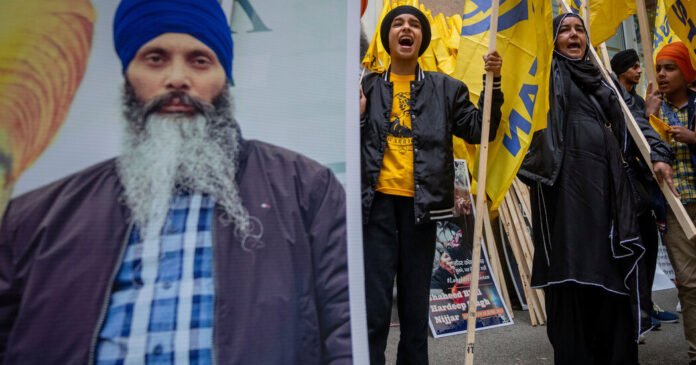The recent killing of Sikh activist Hardeep Singh Nijjar in India has reverberated beyond national borders, drawing attention from international observers and prompting reactions from foreign governments. Among those weighing in on the matter is the United States Department of State, whose response underscores the significance of addressing human rights concerns and ensuring accountability in cases of violence and extrajudicial killings.
Hardeep Singh Nijjar, a prominent Sikh activist based in British Columbia, Canada, was reportedly killed in Punjab, India, in circumstances that remain unclear. Nijjar was known for his activism on behalf of Sikh rights and was alleged to have been involved in militant activities in India, accusations that he vehemently denied. His death has reignited debates about human rights violations and the treatment of minorities in India, particularly in the context of ongoing tensions between the Indian government and Sikh communities.
In response to Nijjar’s killing, the US State Department issued a statement expressing concern and calling on Indian authorities to conduct a thorough and transparent investigation into the incident. The statement emphasized the importance of upholding human rights principles and ensuring accountability for acts of violence, irrespective of the identity or affiliation of the perpetrators or victims.
The US State Department’s reaction to Nijjar’s killing reflects a broader commitment to promoting human rights and democracy worldwide. As a leading advocate for global human rights, the United States plays a pivotal role in holding governments accountable for their actions and advocating for the protection of fundamental freedoms and the rule of law.
The killing of Hardeep Singh Nijjar underscores the complex dynamics of identity, activism, and security in India, particularly in regions with significant Sikh populations such as Punjab. Sikh communities have long grappled with issues of discrimination, marginalization, and political unrest, stemming from historical grievances and contemporary socio-political tensions.
Nijjar’s death has reignited concerns about the targeting of activists and dissenting voices in India, raising questions about the government’s commitment to protecting civil liberties and ensuring the safety of its citizens. Critics argue that Nijjar’s killing is symptomatic of a broader pattern of violence and repression against minority communities and political dissidents, highlighting the need for greater accountability and transparency in law enforcement and security operations.
The US State Department’s call for a thorough and transparent investigation into Nijjar’s killing underscores the importance of addressing human rights concerns and ensuring accountability for acts of violence. By urging Indian authorities to take the matter seriously and pursue justice diligently, the United States reaffirms its commitment to upholding universal human rights standards and promoting accountability in cases of human rights violations.
India, as the world’s largest democracy and a key strategic partner of the United States, must heed the call for accountability and transparency in addressing Nijjar’s killing. Upholding the rule of law and protecting the rights of all citizens, regardless of their religious or political affiliations, is essential for fostering a just and inclusive society.
Furthermore, India’s response to Nijjar’s killing will be closely scrutinized by the international community, including its allies and partners. Failure to conduct a credible investigation or address underlying human rights concerns could undermine India’s reputation as a democratic and pluralistic society committed to upholding the rule of law.
In addition, the US State Department’s reaction to Hardeep Singh Nijjar’s killing underscores the importance of addressing human rights concerns and ensuring accountability for acts of violence. As India grapples with the aftermath of this tragic incident, it must take decisive action to uphold the rule of law, protect the rights of all citizens, and demonstrate its commitment to justice and transparency. Only through such measures can India strengthen its democratic institutions and safeguard the rights and freedoms of its diverse population.

